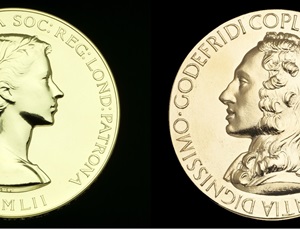Today the Royal Society, the UK’s independent academy for science, announced the winners of 24 medals and awards. The annual prizes recognise exceptional researchers who make outstanding contributions to science.
“The Royal Society has a long-standing tradition of identifying and celebrating the best and brightest scientists. The winners of this year’s medals and awards have all made outstanding contributions to their field. I congratulate them for their distinguished work and their contribution to the advancement of science as a whole,” said Brian Foster, Vice President of the Royal Society.
Shankar Balasubramanian FMedSci FRS and David Klenerman FMedSci FRS were jointly awarded a Royal Medal for their co-development of DNA sequencing techniques transforming biology and genomic medicine.
Shankar Balasubramanian FMedSci FRS said: “I feel hugely honoured to be awarded the Royal Medal and it is humbling to see the previous recipients. I am deeply thankful to the many co-workers and collaborators who have made my scientific explorations so enjoyable and fruitful and continue to do so.”
David Klenerman FMedSci FRS added: “The development of Solexa sequencing was a massive team effort and would not have been possible without the collective contribution of a wide number of highly talented individuals. I am delighted that this achievement has been recognised by this award.”
University of Cambridge Professor Florin Udrea FREng and University of Warwick Professor Julian Gardner FREng were jointly awarded the Royal Society Mullard Award for their work as renowned academics and serial entrepreneurs. In 2008 they founded Cambridge CMOS Sensors based into research on micro hotplate design and manufacturing for gas and infrared sensing. In 2016 the spin-out was acquired by ams AG.
Florin Udrea said: “I’m both extremely happy and surprised to win this very prestigious award, and I’m very grateful to The Royal Society for its choice. This award represents tremendous recognition of our research and entrepreneurial activities in the field of gas sensors based on semiconductor technology. I’m also grateful to not only the students, postdocs and staff in my group at the Department (the High Voltage and Microelectronics and Sensors Group) but also the researchers, engineers and managers at Cambridge CMOS Sensors. My gratitude also extends to our investors in Cambridge CMOS Sensors, with Cambridge Enterprise being among the first.”











